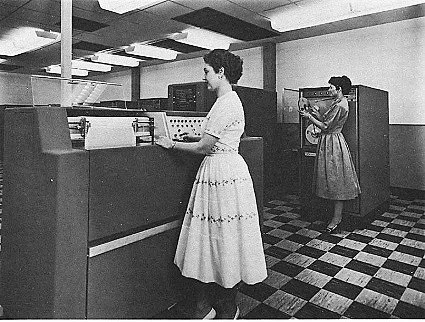
Walker Clark
Worldview Archives

Commonwealth Lawyers Association's Declaration on AI: A Commitment to Ethical Governance
Artificial Intelligence (AI) is reshaping the global landscape, offering transformative possibilities while posing significant challenges. Recognizing its dual potential, the Commonwealth Lawyers Association (CLA) has issued a comprehensive Declaration on AI, emphasizing ethical governance, human rights, and sustainability. This statement, released on April 9, 2025, outlines seven guiding principles to ensure AI's responsible development and deployment.

Establishing a Risk-Management Program for AI in Law Firms
How can your law firm's risk management programs keep up with the ethical and practical challenges of artificial intelligence?
Here is a "quick start" outline.

Removing Barriers to Pride and Professionalism
Most law firms talk a lot about their "professional quality."
Most of them also unwittingly obstruct it.
By identifying and dismantling the barriers that prevent legal professionals from taking pride in their work, law firms can unlock a higher level of personal satisfaction and commitment, leading to superior service, client loyalty, and overall firm success.

Driving Fear Out of Law Firms
Law firm leaders must foster environments in which everyone feels secure and valued.
This is the ninth in a series of sixteen articles that will explore the relevance and, for some law firms the existential importance, of W. Edwards Deming's Fourteen Points, especially for small and midsize law firms.

Leading the Way to Quality in Legal Services
The legal services industry is awash in advice about leadership. How can Deming's Seventh Point build better leadership in law firms?
Here are five practical actions that Walker Clark clients are taking that are consistent with Deming’s Seventh Point and the outcomes that they are experiencing from each one.

Training: A Strategic Imperative
Training is not just a nice fringe benefit in law firms. It is an essential investment.
Training is not limited to understanding the intricacies of the law or mastering courtroom strategies. It extends to client interactions, administrative tasks, technological adoption, and even skills such as communication and collaboration. Making training an institution in a law firm ensures that everyone, from senior partners to administrative staff, operate at peak efficiency and with consistent standards.
It’s as important as paying the electric bill.

Continuous Improvement
To remain competitive and profitable in today's legal services market, law firms need to continuously improve how they work.
The fifth of W. Edwards Deming's Fourteen Points, Improve Constantly and Forever the System of Production and Service, calls for a never-ending commitment to enhancing quality and efficiency within an organization. This principle has profound implications for law firms, impacting not only day-to-day internal operations but also bottom-line profitability.

End the practice of awarding business based on price.
In an increasingly competitive landscape, law firms, like any business, might feel compelled to make decisions based on price alone.
However, the fourth of W. Edwards Deming's Fourteen Points for better management warned against this practice, arguing that cost should not be the primary consideration in business decisions. Instead, he championed a more holistic approach that weighs quality and long-term value alongside price.

Cease dependence on inspection.
"Cease dependence on inspection," W. Edwards Deming's third point for effective management, is perhaps one of the least understood principles in the context of service industries like law firms.
Conventionally, it translates into the notion that quality should not be an afterthought checked through after-the-fact inspections but ingrained in every step of the production process.
For law firms, this means shifting the focus from reactive measures to proactive strategies that enhance the quality of legal services by reducing or eliminating altogether the causes of mistakes and rework.

Constancy of Purpose
This is the second of a series of sixteen articles that will explore the relevance and, for some law firms the existential importance, of W. Edwards Deming's Fourteen Points, especially for small and midsize law firms.
The first of W. Edwards Deming's Fourteen Points for effective management calls for organizations to "Create Constancy of Purpose for Improving Products and Services." How can law firms do this in the face of changing client expectations and market dynamics?

Why Law Firms Need Deming’s Fourteen Points Now More Than Ever
Quality service, not price, rankings, or size, is what will differentiate successful law from from those that merely survive the 2020s.
Delivering the best quality legal services is a sincere aspiration of almost every law firm. For most of them, however, the word quality is little more than a slogan on their websites.
This is the first of a series of sixteen articles that will explore the relevance and, for some law firms, the existential importance, of W. Edwards Deming's Fourteen Points.

Fix the work first...
If you apply technology — even artificial intelligence — to a flawed work process, you will only make mistakes and lose money faster.
Before a law firm applies a technological tool or system to its internal operations, especially at the practice group level, it should first analyze, understand, and implement responses to weaknesses in the internal systems and processes by which it prepares and delivers legal services to clients.

Eight Things for Indian Law Firms to Think About
As part of our ongoing experiment to test the potential value of artificial planning in law firm management, we asked the newest version of our chatbot, openai GPT-4, what Indian law firms should be considering in their planning for the incursion of foreign law firms into the Indian legal market.
The response outlined eight good starting points.

Will the '“law firm of the future” need fewer lawyers?
A report from the American Bar Association suggests that the demand for lawyers, at least in the United States, might have begun to subside. 38,020 students started their first year of law school during the autumn 2022 term, compared to 42,718 in 2021, according to the report. Meanwhile, there has been a significant increase in enrollments in non-J.D. programs.
Although this data is limited to the U.S., Walker Clark LLC has begun to notice what might be the start of a similar trend in some other jurisdictions as well. What could this mean for your law firm?

CRM: No Longer a Luxury for Lawyers
One of the most important lessons of the pandemic has been the vital importance of maintaining frequent personal contact with clients.
Client Relations Management (CRM) systems need to move from the marketing department onto the desktop of every fee earner in a law firm. In the hands of a reasonably diligent lawyer — even a horribly busy one — a good desktop CRM system streamlines the flow of information between a central marketing and business development database and each lawyer.

“More Law” not “Big Law”
Service delivery capability, not size, is what will determine the profitability — and perhaps the survival — of most traditional law firms between now and 2030.

What will law firms look like in 2049?
Herbert Smith Freehills CEO Mark Rigotti has published a thought-provoking article in today's on-line edition of LegalWeek.
As we start 2019, his comments should be "required thinking” for lawyers everywhere.

Are you ready for 1-to-400 leverage?
For most firms, a 1-to-4 leverage ratio has long been considered to indicate a desirable level of profitability, while also being manageable.
What will happen when artificial intelligence systems give law firms the potential to generate leverage of 1-to-400?

New Paradigms and Old Lessons for Cyberlawyers
Technology has been a fundamental component of the practice of law for a quarter-century; but most law firms have failed to understand how it is fundamentally changing – indeed, already has fundamentally changed – the practice of law.
Law firms must continue to evolve. Not all will be able to do so.

Artificial Intelligence: The Legal Mind at its Best?
Law firm partners should invest a few minutes in their own future, by watching a recent series of TED Talks about artificial intelligence.
None of these talks deal directly with the practice of law, but all of them are highly relevant to the Scylla and Charybdis of profitability and competition that threaten small and midsize law firms throughout the world.

